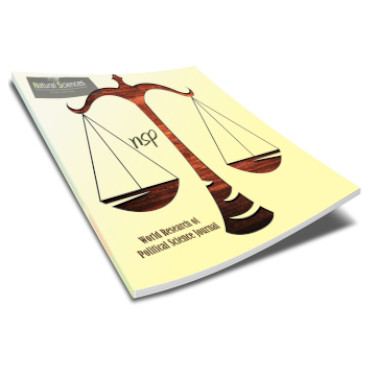
The World Research of Political Science Journal
Abstract
Formed as a result of the Zionist movement, which emerged from anti-Semitism across Europe, Israel was envisioned as a state for Jews. However, the founders of Israel also saw it as a state where non-Jews would be equal citizens. Contrary to this vision, the Israeli state today has evolved into one that has marginalised and discriminated against its Palestinian Arab citizens. The emphasis of the state in maintaining its Jewish character has deepened divisions between the two communities and has alienated the Arab community in Israel. Arabs make up 21 per cent of Israel’s population as of 2019 but have been excluded from the core of its territory and identity and have been accorded the status of second-class citizens. Discrimination against Arabs is also manifested in laws and regulations designed to only promote Jewish interests. Laws about issues like land ownership, education and distribution of resources all privilege Jews. When it comes to political participation, while Arab political presence has grown at the national level in the Knesset, no Arab party has ever been included in a governing coalition to date, leaving them out of positions of actual influence and the decision-making at the national level. In this context of exclusion, a consociational model of governance could enable the Arab community, at the periphery of Israeli society and politics, to have a larger say in the structures and processes of the state. On paper, this model allows Arabs more representation in a deeply divided society through governing coalitions, proportional representation, segmental autonomy and minority veto. Practical application of this model requires addressing the Jewish hegemony which is very deeply entrenched in the identity of the state and its Jewish citizens. This first calls for the state to foster better trust and a better relationship with its Arab minority.
Recommended Citation
Sangha, Nirmolika
(2020)
"Consociational Democracy in Israel,"
The World Research of Political Science Journal: Vol. 3:
Iss.
1, Article 5.
Available at:
https://digitalcommons.aaru.edu.jo/wrpsj/vol3/iss1/5

